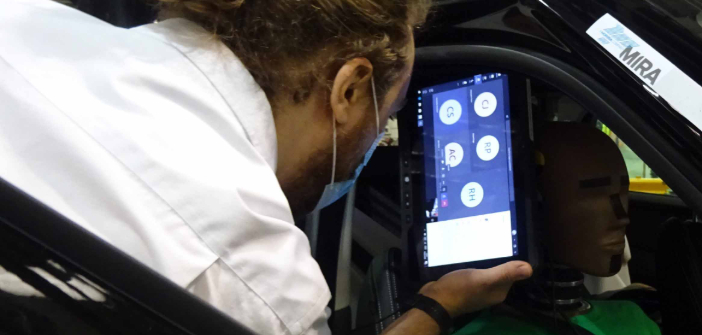Despite the challenges faced by the automotive industry throughout the Covid-19 pandemic, Richard Adams, of testing specialists Horiba MIRA, feels one encouraging takeaway has been the marked shift toward contactless, remote engineering services – a move that promotes its mainstream adoption across the industry.
As part of the nationwide lockdown in the UK, this March saw the automotive industry close factories and re-evaluate new product development plans. Vehicle manufacturers were faced with the prospect of postponing, or abandoning, critical programs – putting at risk their viability unless new and effective working practices could be enacted quickly.
Fortunately, the UK-based firm already had a practical solution for the continuation of business ready to go, enabling a wide range of vehicle engineering services to be conducted remotely in real time. The result of this, according to Adams, meant it could minimize disruption for the sector, while sparking a widespread acceleration of the adoption of next-generation development processes.
“The coronavirus pandemic has caused unprecedented disruption for the automotive industry, testing our normal working practices and forcing us to adapt in new ways. Yet while it might be a challenging time, it is important to note there are still positives to report,” says Adams.
“One such example is the rise of remote, contactless engineering services. Although we’ve provided this capability for over a decade, the offering has never been as popular, as customers seek to continue with vital vehicle development programs. Crucially, while these recent decisions may have initially been taken on a needs-must basis, many of our customers are now realising the multiple benefits afforded by taking this approach.”
As an early adopter of the remote application of vehicle testing, the company’s end-to-end contactless services include the use of ‘secured’ live data, remote re-flashing, wearable cameras and CCTV in laboratory settings, which enable offsite customer teams to drive the development process in real time.
“Fundamentally, a huge benefit lies in the flexibility of remote engineering services. At Horiba MIRA, the delivery team could be entirely resourced by our engineers, or a blend of OEM and Tier 1 and 2 stakeholders as the program dictates at different times,” Adams adds.
“This way, program leaders, often with multiple teams operating in global locations, are able to maintain a meaningful understanding of the development status for each program without the need to send oversized teams to witness the development process – a feat which has proved crucial amid Covid-19. The end-result is a faster technical iteration rate at a lower cost.
“To ensure our industry emerges with the best toolset possible to respond to this crisis and grow, now is the time to recognize the benefits associated with remote engineering services and embed these into our future systems of working.
“There’s no doubt that there will be more change to come for the automotive sector as we look to meet the challenge of driving forward in a post-pandemic world, however this notable shift toward remote engineering services marks the defining chapter in a positive legacy toward mainstream adoption.”


